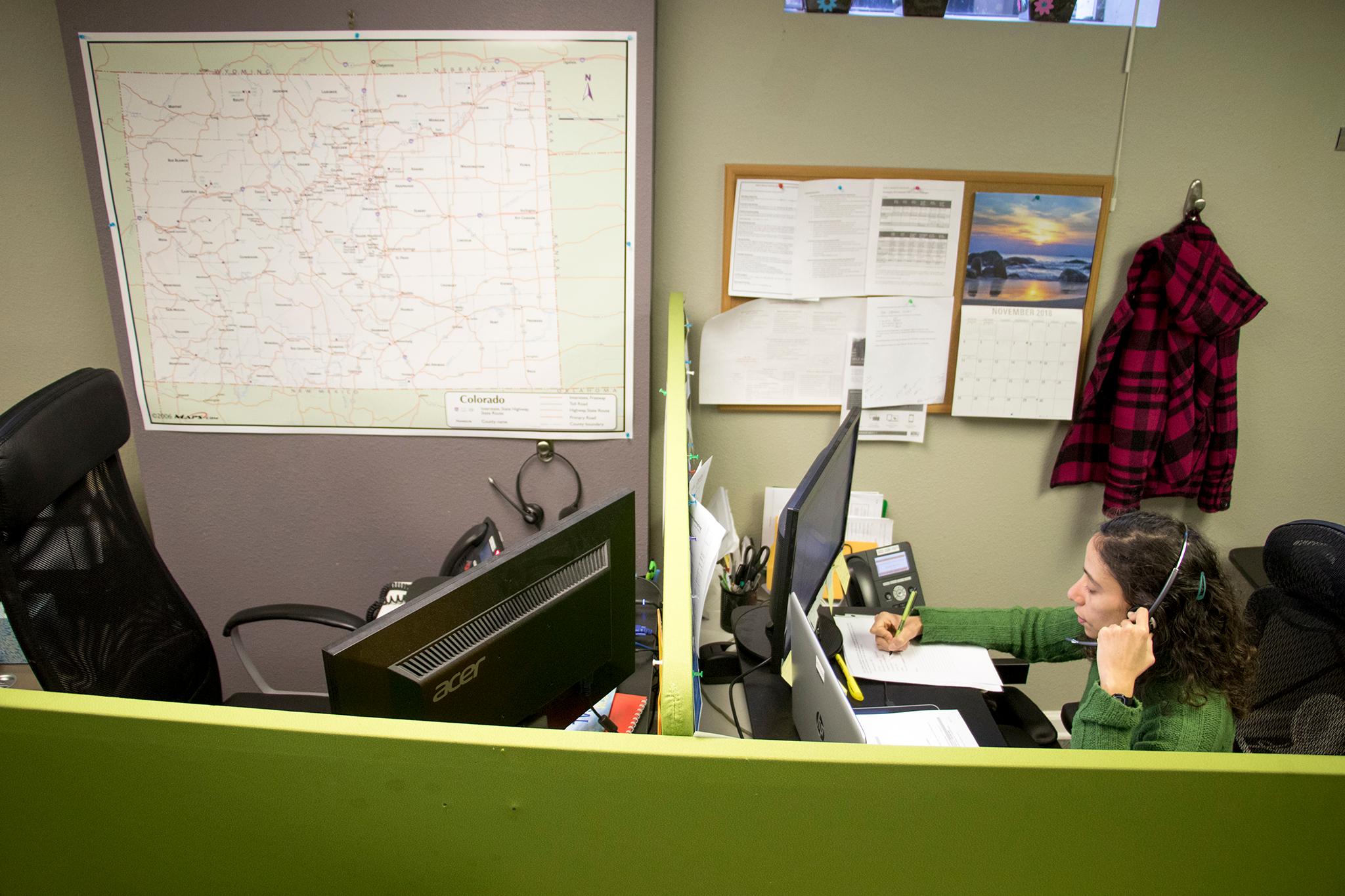What the Trump administration calls a money-wasting loophole may be a safety net for some families in Denver and beyond.
Last week U.S. Secretary of Agriculture Sonny Perdue proposed changing a rule that 40 states -- including Colorado -- use to expand the pool of people eligible for the federal Supplemental Nutrition Assistance Program, commonly known as SNAP or food stamps. County officials administer the program.
The U.S. Department of Agriculture estimates about 3 million people across the country would lose food stamps if the change goes through. State officials estimate that of the more than 456,000 people who get food assistance in Colorado every year, more than 33,000 would be ineligible under the proposed rules.
Nearly 4,200 of newly ineligible people would be Denver residents, according to Don Mares, executive director of the Denver Department of Human Services.
Mares stressed Monday that amid the bureaucratic and political discussions, "we're talking about food" in a city where an estimated 16 percent of households can't reliably access enough to eat and where high housing and other costs strain budgets.
Flexibility around who gets SNAP is a tool Human Services uses to help people stop using benefits altogether, and prevent families on the cusp from tipping over into crisis, Mares said.
The current system came about during the Great Recession when President Obama's administration urged states to provide food stamps to people receiving a range of benefits under the federal Health and Human Services's Temporary Assistance for Needy Families.
States that followed the rule change, including Colorado, began abiding by looser income limits than what Congress had set to qualify for food stamps.
While the overall economy has recovered from the downturn of the late 2000s, many household incomes continue to lag behind the cost of living.
"We have to be able to bridge that issue, that divide," Mares said.
In a conference call with reporters when the changes were proposed, Perdue referred to what the Obama administration termed "broad-based categorical eligibility" as a loophole that he said was being abused. Perdue cited self-described millionaire and Trump supporter Rob Undersander who told the Minnesota legislature last year that he and his wife had received about $6,000 in food stamps over 19 months because his assets and retirement account withdrawals didn't count against his eligibility.
"It's our job to ensure that people who truly need food assistance receive what they're entitled to," Perdue said. "However what we've found is some states are taking advantage of loopholes that allow people to receive the SNAP benefits who would otherwise not qualify and for which they are not entitled."
In Colorado, Mares said, such instances of abuse are "probably incredibly rare."
Kate Kasper, director of public policy at Hunger Free Colorado, said people seeking support under the more flexible rules are vetted and have to prove, for example, that childcare, housing, utility or other expenses are making it difficult to make ends meet even if they are earning slightly more or have savings tucked away for emergencies.
Broad-based eligibility is "simply not a loophole," she said.
A restaurant worker in Denver who gets a few extra hours, but does not earn enough more to cover childcare or housing, is one example offered up by Kasper. The cook, say, gets crucial support under current rules. Continuing to receive SNAP benefits could allow such a worker to keep working and gradually get to the point of no longer needing benefits, she said.
Perdue said if the changes were adopted, states would still have flexibility because SNAP would serve households receiving TANF-funded cash or benefits of at least $50 per month for at least 6 months.
Brandon Lipps, Perdue's acting deputy under secretary for food, nutrition and consumer services, said during the same conference call with reporters that Perdue addressed last week that the proposed change would save USDA $2.5 billion a year.
Hunger Free Colorado's Kasper said many of the Coloradans helped under the current policy are seasonal workers in, for instance, the ski industry or agriculture. Such workers might fall out of eligibility under federal rules part of the year, then need to go back on SNAP at other times. The administrative costs of processing re-applications for SNAP could offset any savings from changing the policy, Kasper said.
She raised the same issue about a provision in the current program under which thousands of children are automatically eligible for free or reduced-price breakfasts and lunches. Perdue said if the changes are implemented, the children could apply to their schools for meals.
The change "would definitely add to the paperwork," Kasper said.
Mares said of the proposed change: "I'm baffled by the concept of inserting a bureaucratic inefficiency."
USDA is accepting public comment on its proposal until Sept. 23. Kasper, of the anti-hunger nonprofit, said similar proposals have been put off in the face of public or legislative opposition.
Mares said the city of Denver was considering submitting a comment.













